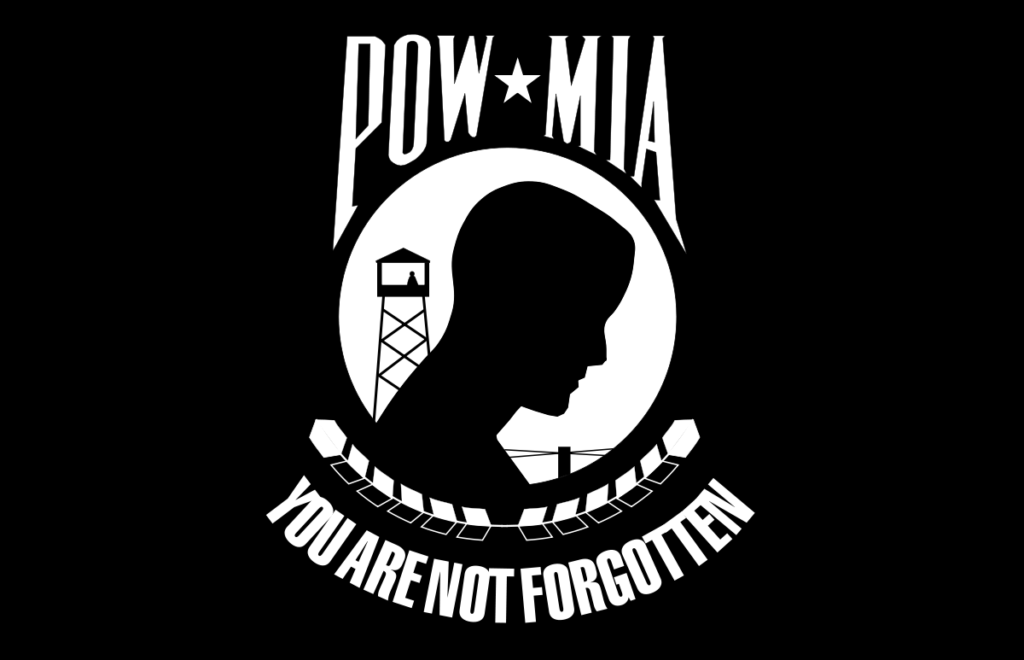
In 1971, the wife of MIA serviceman Michael Hoft was a member of the National League of Families. She recognized the need for a symbol for the POW/MIAs, and contacted Norman Rivkees, the Vice President of Annin & Company to make a flag. The company commissioned Newton Heisley, a creative director for an advertising firm in New Jersey to design the flag. A former World War II pilot, Heisley sketched several designs based on his wartime memories. The design that was chosen depicted a silhouette of a man’s head with barbed wire and a watchtower in the background. Below the design, the flag bears the motto “You Are Not Forgotten.” Following the approval of the National League of Families, flags were manufactured and distributed.
In 1990, the 101st Congress officially recognized the POW/MIA flag, designating it “the symbol of our Nation’s concern and commitment to resolving as fully as possible the fates of Americans still prisoner, missing and unaccounted for in Southeast Asia, thus ending the uncertainty for the families and the Nation” (Public Law 101-355).
The flag’s message is spread through its visibility. The POW/MIA flag has flown over the White House on National POW/MIA Recognition Day since 1982. With the exception of the American flag, the POW/MIA flag is the only flag to fly over the White House and fly continually over the Capitol’s rotunda.
The American Legion is committed to achieving a full accounting of all POW/MIAs from the Gulf War, Vietnam War, Cold War, Korean War and World War II. This means returning living POWs, the repatriation of their remains, or finding convincing evidence why neither of these is possible.
The American Legion supports the continued declassification of all POW/MIA information, the strengthening of joint commissions with Russia, North Korea and China, and adequate resourcing of investigative efforts and field operations to resolve POW/MIA issues. The American Legion has also worked continuously with both Congress and DoD to improve the policies and programs for the accountability of missing persons. This includes urging the president and Congress to fully fund the Defense POW/MIA Accounting Office (DPMO) for its current and future mission of ensuring the accountability of U.S. servicemembers. The American Legion will continue to speak out and exert maximum pressure on both the administration and on Congress to fully account for America’s POW/MIAs.
Resolution 288, adopted at the 67th American Legion National Convention, calls for designating a POW/MIA Empty Chair at all official meetings of The American Legion as a physical symbol of the thousands of American POW/MIAs still unaccounted for from all wars and conflicts involving the United States.
